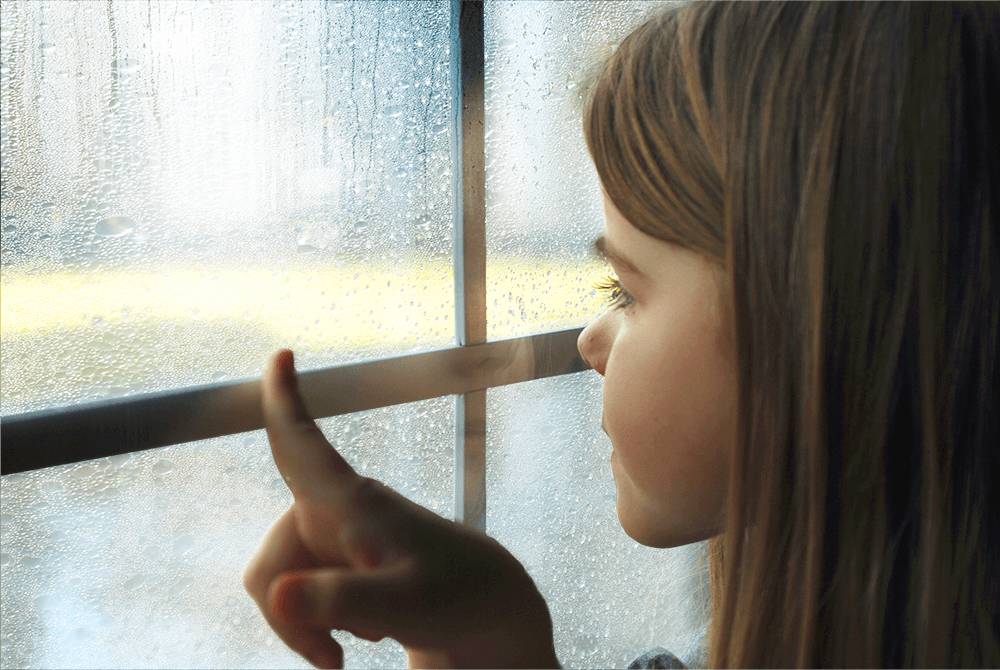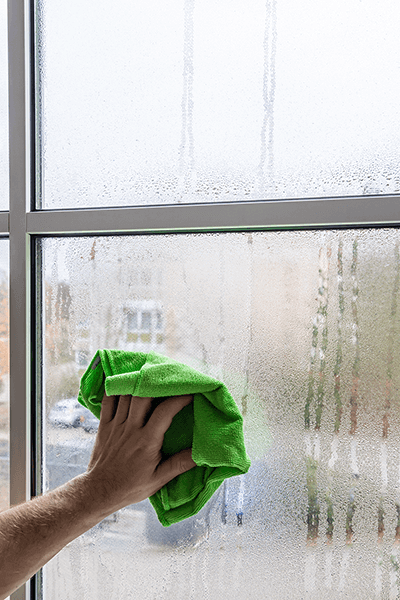Got Wet Windows? Don’t Sweat Condensation
Apr 02, 2024
Take steps to put a damper on dampness
Fogged windows are a fact of life, but frequent and lasting condensation on your windows can be a problem. It shows up in two ways. First, too much moisture inside your home encourages your window frame to rot and mold to grow. Second, ongoing condensation can be a sign that your house is not “breathing” properly and needs better ventilation.
Condensation happens whenever warm, moist air contacts a cool surface; we’ve all seen a drinking glass “sweat” on a summer afternoon. In terms of windows, condensation can happen either indoors or outdoors. Exterior window condensation occurs when humid air encounters cool window glass, such as when you run the air conditioner on a muggy summer night and wake up to drippy windows outside. When the temperature drops, the first place you will see any condensation is on the windows.
The bigger—and more common—the issue is interior condensation. As winter comes on, the warm, moist air meeting cold window glass will be indoors. And that can mean water running down your windows and puddling along with window frames and windowsills. Interestingly, large windows may be more likely to show condensation than smaller windows, and so will windows protected from the wind. Also, new windows may have more condensation than old windows because they’re snugger and more airtight. (We’ll get into the ventilation thing in a moment.)
Some humidity indoors is unavoidable and absolutely necessary. Don’t get upset over the occasional foggy window. However, if you regularly have beads of water running down your windows, something could be awry.
Condensation on double-glazed windows. Is it bad seals or indoor humidity?
Before calling for a repair service, try this easy test. Run your finger through the area where the condensation is formed. If your finger gets wet and leaves a trail through the condensation, it’s on the room side of the glass. That tells you that condensation is forming because of excessive indoor humidity.
Consider taking steps if:
- The air in your home smells musty.
- You see mold, mildew or rot around your windows.
- Even after outdoor temperatures warm up, condensation clings to your windows.
- You notice damp walls, staining, peeling wallpaper, or blistering paint.

Time to Clear the Air – of Humidity and Pollutants
What to do? First, dry out. Ongoing condensation is a sign your humidity is too high. Lots of things affect indoor humidity—cooking, showering, running a dishwasher or humidifier—even your houseplants. (Plus breathing, as we know.) Other less common contributors are pets, fish tanks, and firewood you might be storing indoors. Note how many of these items are in your home and see what you can do to reduce their impact. If you use a humidifier, for example, try turning it down or running it less often. Use the exhaust fans in your bathroom or kitchen every time you shower or cook, and let them run for 15 to 20 minutes. If you have lots of plants sitting near your windows (so they get sunlight, duh), consider moving them to another spot where moisture from their leaves and potting soil won’t boost humidity near your windows. Also consider purchasing a dehumidifier or a prepackaged desiccant product like DampRid, if simpler measures don’t work.
Then, stir the air.
Good air circulation helps fight condensation. It’s possible your home isn’t “breathing” enough, especially if you’ve got newer windows and have thoroughly insulated and weather-stripped. Today’s airtight and energy-efficient windows may cut heating costs, but they also reduce air leaks, and so seal in humidity and contaminants. The easiest and quickest way to boost ventilation (although it won’t help your energy bill) is by opening the windows a little now and then. Another option is to run your ceiling fans. Stirring warmer air near the ceiling into cooler air near the floor can boost evaporation on your windows.

How Can We Help?
At McCann Windows & Exteriors, we don’t want you steamed up about foggy windows or excess condensation. Let us help you get clear on the best ways to keep you and your home in tip-top shape all winter, especially when it comes to windows, doors and exterior renovations. We’re ready to serve you and estimates are free! Please just give us a call at 847-562-1212 or schedule a free consultation here. We’ll be right over.
Yours,
Kevin McCann











